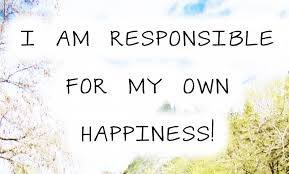
By Eileen Shim April 16, 2014
The news: Every day, the push toward national legalization of marijuana seems more and more inevitable. As more and more politicians and noted individuals come out in favor of legalizing
or at least decriminalizing different amounts of pot, the mainstream acceptance of the recreational use of the drug seems like a bygone conclusion. But before we can talk about legalization, have we fully understood the health effects of marijuana?
According to a new study published in the Journal of Neuroscience, researchers from Harvard and Northwestern studied the brains of 18- to 25-year-olds, half of whom smoked pot recreationally and half of whom didn't. What they found was rather shocking: Even those who only smoked few
times a week had significant brain abnormalities in the areas that control emotion and motivation.
"There is this general perspective out there that using marijuana recreationally is not a problem — that it is a safe drug," said Anne Blood, co-author of the study. "We are seeing that this is not the case."
The science: Similar studies have found a correlation between heavy pot use and brain abnormalities, but this is the first study that has found the same link with recreational users. The 20 people in the "marijuana group" of the study smoked four times a week on average; seven only smoked once a week. Those in the control group did not smoke at all.
"We looked specifically at people who have no adverse impacts from marijuana — no problems with work, school, the law, relationships, no addiction issues," said Hans Breiter, another co-author of the study.
Using three different neuroimaging techniques, researchers then looked at the nucleus accumbens and the amygdala of the participants. These areas are responsible for gauging the benefit or loss of doing certain things, and providing feelings of reward for pleasurable activities
such as food, sex and social interactions.
"This is a part of the brain that you absolutely never ever want to touch," said Breiter. "I don't want to say that these are magical parts of the brain — they are all important. But these are fundamental
in terms of what people find pleasurable in the world and assessing that against the bad things."
Shockingly, every single person in the marijuana group, including those who only smoked once a week, had noticeable abnormalities, with the nucleus accumbens and the amygdala showing changes in density, volume and shape. Those who smoked more had more significant variations.
What will happen next? The study's co-authors admit that their sample size was small. Their plan now is to conduct a bigger study that not only looks at the brain abnormalities, but also relates them to functional outcomes. That would be a major and important step in this science because, as of now, the research indicates that marijuana use may cause alterations to the brain, but it's unclear what that might actually mean for users and their brains.
But for now, they are standing behind their findings.
"People think a little marijuana shouldn't cause a problem if someone is doing OK with work or school," said Breiter. "Our data directly says this is not so."
The news: Every day, the push toward national legalization of marijuana seems more and more inevitable. As more and more politicians and noted individuals come out in favor of legalizing
or at least decriminalizing different amounts of pot, the mainstream acceptance of the recreational use of the drug seems like a bygone conclusion. But before we can talk about legalization, have we fully understood the health effects of marijuana?
According to a new study published in the Journal of Neuroscience, researchers from Harvard and Northwestern studied the brains of 18- to 25-year-olds, half of whom smoked pot recreationally and half of whom didn't. What they found was rather shocking: Even those who only smoked few
times a week had significant brain abnormalities in the areas that control emotion and motivation.
"There is this general perspective out there that using marijuana recreationally is not a problem — that it is a safe drug," said Anne Blood, co-author of the study. "We are seeing that this is not the case."
The science: Similar studies have found a correlation between heavy pot use and brain abnormalities, but this is the first study that has found the same link with recreational users. The 20 people in the "marijuana group" of the study smoked four times a week on average; seven only smoked once a week. Those in the control group did not smoke at all.
"We looked specifically at people who have no adverse impacts from marijuana — no problems with work, school, the law, relationships, no addiction issues," said Hans Breiter, another co-author of the study.
Using three different neuroimaging techniques, researchers then looked at the nucleus accumbens and the amygdala of the participants. These areas are responsible for gauging the benefit or loss of doing certain things, and providing feelings of reward for pleasurable activities
such as food, sex and social interactions.
"This is a part of the brain that you absolutely never ever want to touch," said Breiter. "I don't want to say that these are magical parts of the brain — they are all important. But these are fundamental
in terms of what people find pleasurable in the world and assessing that against the bad things."
Shockingly, every single person in the marijuana group, including those who only smoked once a week, had noticeable abnormalities, with the nucleus accumbens and the amygdala showing changes in density, volume and shape. Those who smoked more had more significant variations.
What will happen next? The study's co-authors admit that their sample size was small. Their plan now is to conduct a bigger study that not only looks at the brain abnormalities, but also relates them to functional outcomes. That would be a major and important step in this science because, as of now, the research indicates that marijuana use may cause alterations to the brain, but it's unclear what that might actually mean for users and their brains.
But for now, they are standing behind their findings.
"People think a little marijuana shouldn't cause a problem if someone is doing OK with work or school," said Breiter. "Our data directly says this is not so."
